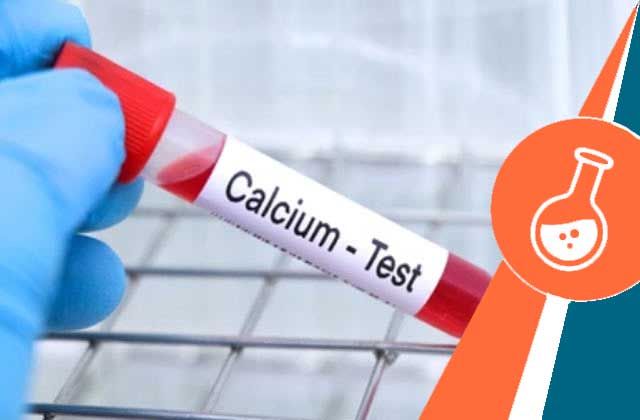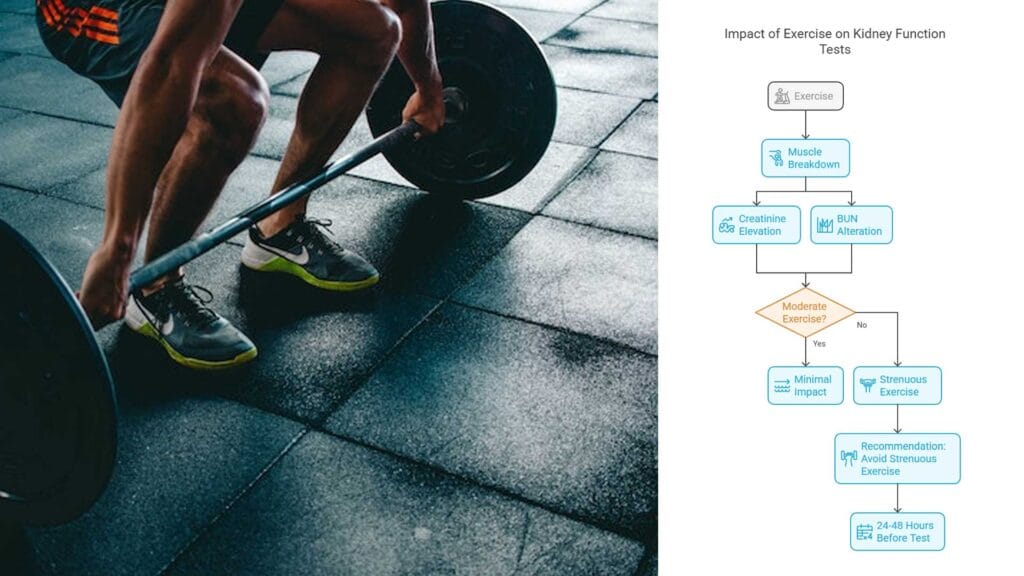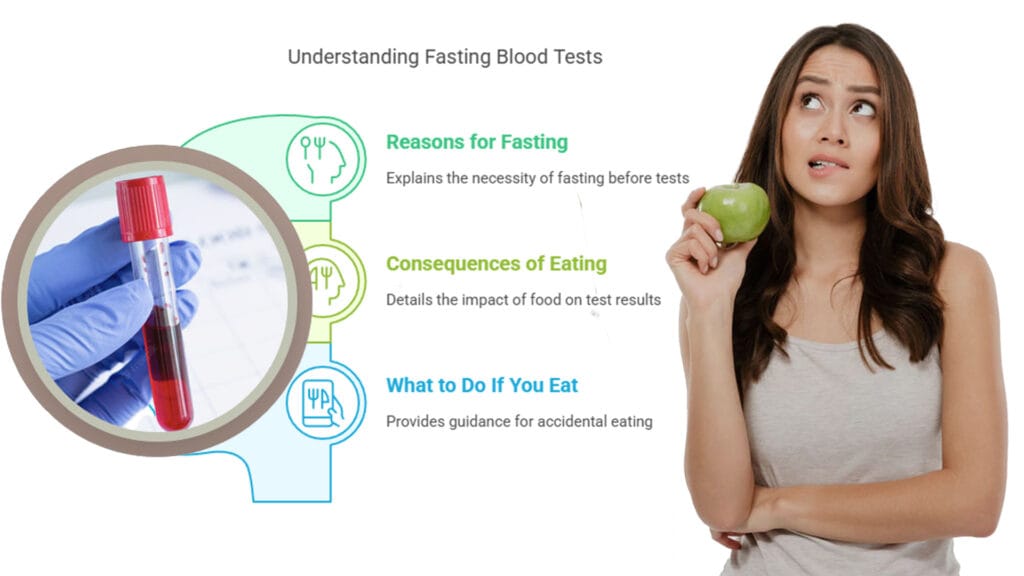What Is Calcium Test?
Healthcare providers use a calcium level test (also called a serum calcium test) to detect calcium levels in your body. Calcium is an essential mineral that is required for the proper operation of your nerves, muscles, and heart. Therefore, Deviations from calcium levels’ normal range could indicate various health issues, such as diseases of the bones, thyroid, parathyroid, and kidneys, among others.
About Calcium Test
Learn everything about the calcium profile test before you book lab test online. Understand the why, how, and what of this test.
What Does the Test Measure?
During the calcium serum or the s calcium test, the medical practitioner takes a small blood sample from your arm and sends it for laboratory analysis. The blood is analysed for the concentration of calcium.
Two Types of Calcium Blood Tests
The two types of calcium serum tests achieve different results for your doctor:
- Measures all calcium, combining both “bound calcium” (attached to proteins) and “free” or ionised calcium (not attached to proteins).
- Given the body’s regulation of calcium balance, this test effectively estimates the level of ionised calcium, which is crucial for many body functions.
- Commonly included in routine screening tests like the basic metabolic panel (BMP) and comprehensive metabolic panel (CMP).
Total Calcium Test:1
Ionised Calcium Test:
- Focuses specifically on measuring “free” calcium that is unattached to proteins in the blood.
- It is more specialised and often ordered if total calcium test results are abnormal or in situations requiring close monitoring of calcium levels (due to certain medical conditions, serious illness, or surgery).
Note that while these two calcium deficiency tests measure blood calcium levels, they do not indicate calcium content in bones. A bone density test (also known as a bone calcium test), such as a DEXA scan, is used to evaluate bone health
Symptoms of Having Too Much Calcium in your Blood (Hypercalcemia) Include:
Some common symptoms of hypercalcemia include:2
- Fatigue and weakness
- Kidney stones
- Frequent urination
- Abdominal pain
- Bone pain
- Nausea and vomiting
- Constipation
- Increased thirst and dehydration
- Confusion or mental changes
Symptoms of Having Too Little Calcium in Your Blood (Hypocalcemia) Include:
Symptoms of having too little calcium in the blood (hypocalcemia) are as follows:
- Muscle cramps and spasms, especially in hands, feet, or face
- Tingling or numbness
- Muscle weakness
- Fatigue
- Abnormal heart rhythm (palpitations, irregular heartbeat)
- Seizures (in severe cases)
- Brittle Nails and hair
- Poor dental health (increased risk of tooth decay, gum disease)
Why Do Doctors Recommend Calcium Tests?
Doctors prescribe a calcium blood level test for the following reasons 3:
- Its recommended to monitor medical conditions that affect bones, kidneys, digestive system, thyroid, and parathyroid glands.
- To evaluate the overall health of an individual’s bones.
- To detect hypercalcemia or hypocalcemia.
- To detect if an individual has a deficiency of vitamin D.
How To Prepare For a Serum Calcium Test?
The steps below help you ensure that your Calcium test provides the most accurate information about your health.
- Medication guidelines: Tell your healthcare provider about all the drugs, supplements or herbal remedies you are taking, as some substances may affect test results. Follow any specific instructions regarding drug adjustment before testing.
- Contact to doctor: Share your entire medical history with existing conditions or symptoms to help explain test results.
What Happens During Calcium Testing?
A Calcium Test only takes a few minutes.
- As per the scheduled time of the blood test, a Lab Technician who usually takes blood samples will arrive.
- A thin needle will be used to draw blood from your arm’s vein.
- The needle might cause a mild pinch and some discomfort.
- The lab technician then fills a collection tube with blood and then removes the needle from the skin.
- They place a small bandage on the arm
Please note: There might be slight pain or bruising at the spot of insertion, but most of the symptoms go away quickly.
Finding Calcium Test
Should you book blood test online to check your health condition or go to the nearest clinic and get it done by a medical professional? Let’s Find Out
Can I Take a Calcium Test At Home?
Yes, the Calcium Test can be taken at home. HealthcareOnTime’s at-home lab testing service, in association with thyrocare, provides a convenient and efficient way to get blood testing done from the comfort of your own home without the need for a doctor’s visit or a trip to a lab. It’s important to note that it’s always a good idea to consult with an expert healthcare provider about any queries you may have about your test results.
How Much Does Calcium Test Cost?
The Calcium test price varies significantly depending on many factors:
- Location: The Calcium test prices in India may vary depending on the city or the region in which the test is conducted. For example, in Bangalore or Mumbai, it might be expensive as compared to small towns.
- Type of facility centres: The Calcium test charge also varies between private hospitals, government hospitals, and diagnostic centres. Cost is lower in government hospitals as compared to private ones.
- Healthcare centres: Diagnostic centres, laboratories and hospitals may have different Calcium test prices. It depends upon the benefits and reputation of the healthcare centre.
- Insurance Coverage: Individuals with health insurance can cover partial or all costs depending on their policy coverage and network providers.
- Additional services: Additional services such as home sample collection, express test results, or additional charges for special management may be paid, which contributes to the overall Calcium test price.
Generally, the Serum Calcium test cost in India ranges from Rs. 150 to Rs. 800. By opting for HealthcareOnTime lab test at-home facilities, you can access the Calcium serum test at the cost of INR 200.
Test Results Interpretation
You received your calcium blood test results but still need help determining if they fall under the normal range. Read this section to know if your results range between the calcium normal range.
What Do Calcium Test Results Mean?
Interpreting calcium test results involves considering individual factors such as age, gender, health history, and lab standards. It’s crucial to consult with your healthcare provider for a personalised interpretation.
High Calcium Levels (Hypercalcemia) 4
- What It Could Mean: Possible indication of overactive parathyroid glands, certain types of cancer, bone disorders, or excessive vitamin D intake.
Low Calcium Levels (Hypocalcemia)
- What It Could Mean: May suggest low blood protein levels due to liver disease or malnutrition, underactive parathyroid glands, dietary deficiencies, or kidney disease.
These results are not definitive diagnoses and can be influenced by various factors, including diet and medication. Discussing your results with your healthcare provider is essential for accurate interpretation and understanding of what they could mean for your health.
What is a Normal Range for a Calcium Test?
| Calcium Levels (mg/dL) | Interpretation |
| Less than 8.5 | Hypocalcemia (low calcium levels) |
| 8.5 – 10.3 5 | Calcium level normal range |
| More than 10.3 | Hypercalcemia (high calcium levels) |
Typically, a normal range for ionised calcium in the blood falls between 4.6 to 5.3 milligrams per deciliter (mg/dL).
What Medical Conditions Can Cause High Calcium Levels?
Several medical conditions can cause high calcium levels. Some of them are 6:
- Hyperparathyroidism (overactive parathyroid glands)
- Certain cancers affecting the parathyroid glands, bones, or lungs
- Hyperthyroidism (overactive thyroid glands)
- Kidney disease (reduced calcium excretion)
- Vitamin D overdose
- Lung disorders like sarcoidosis and tuberculosis
- Certain medications (Ex: thiazide diuretics)
- Prolonged immobilisation or bed rest
What Medical Conditions Can Cause Low Calcium Levels?
Various kinds of medical conditions can cause low calcium levels. They include 7:
- Hypoparathyroidism (underactive parathyroid glands)
- Vitamin D deficiency or malabsorption
- Chronic kidney disease (reduced activation of vitamin D)
- Malabsorption disorders
- Pancreatitis (inflammation of the pancreas)
- Magnesium deficiency (impairs calcium regulation)
- Certain medications
- Surgical removal of the parathyroid glands
More Related Tests
Why To Book with HealthCareOnTime

17 Crores+ Samples Processed

World Class Technology Labs

25+ Years of Trust & Experience

Free Home Collection
FAQs Around Serum Calcium Test
How much does Calcium Test cost?
The Calcium Test cost is Rs.300, although it is now available for Rs.200 because of the offer.












